Spring is Finally Here and Everything is Starting to Sprout and Bloom
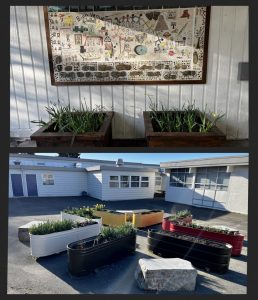
Image 1: Daffodils we planted this fall 🌼
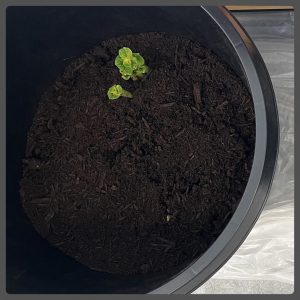
Image 2: Potatoes we planted before Spring Break 🥔

Image 1: Daffodils we planted this fall 🌼

Image 2: Potatoes we planted before Spring Break 🥔
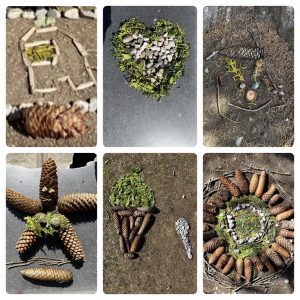
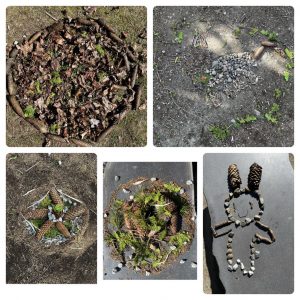

Quotes to Consider:
“If you truly love nature, you will find beauty everywhere.” ~ Laura Ingalls Wilder
“Art takes nature as its model.” ~ Aristotle
“Nature does not create works of art. It is we and the faculty of interpretation peculiar to the human mind, that see art.”~ Man Ray
“Science, like art is not a copy of nature but a re-creation of her.”~ Jacob Bronowski
“I think having land and not ruining it is the most beautiful art that anybody could ever want.”~Andy Warhol
Questions for further thought when you discover found art in nature:
What found art have you discovered in nature?
How did you react to it? How did it make you feel?
What does this type of art make you think of?
How do you think the artist wants you to engage with their artwork?
What challenges do you think the artist would have with creating land art with items found in nature?
What natural elements were used to create the artwork?
What elements or principles are depicted in the art?
Are there any negative and positive spaces depicted in the artwork?
What significance or meaning might the artwork have?
How will the art change as it is exposed to other natural elements and processes? Would this then change how people view and interact with the art?
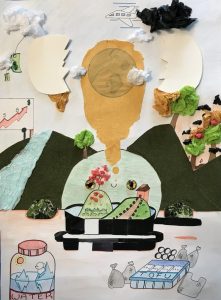
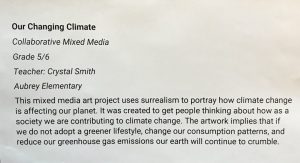
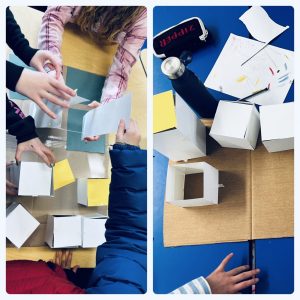 Recently in class students participated in a climate justice and climate change simulation. In this simulation students learned about the consequences of climate change, the injustice, and effects of climate change often experienced by vulnerable populations around the world.
Recently in class students participated in a climate justice and climate change simulation. In this simulation students learned about the consequences of climate change, the injustice, and effects of climate change often experienced by vulnerable populations around the world.
Students work in groups to build communities and attempt to develop mitigation and adaptation strategies while experiencing the impacts of climate change (droughts, tropical storms, rising sea levels, and other impacts of climate change).
Some of the takeaways were:
Climate change is affecting those who are often contributing the least. The people hit the hardest are those already living in poverty and at higher risk.
The simulation also highlighted the affects that climate change is going to have on people.
– Climate change is affecting our ability to grow food. Growing seasons are disrupted or shortened and storms, droughts, and floods all
affect harvest outcomes.
– Climate change is affecting where and how we live making people relocate and find new homes after generations of living in one area. It is also causing extreme storms, rising sea level, melting permafrost, etc.
-Climate change directly affects human health and safety and can lead to the spread of diseases (like malaria), heat waves, wild fires, air pollution.
This lesson is going to be one of many climate change lessons as we explore more sustainable ways of being and doing in our world in an attempt to protect the planet.
After Spring Break students will also be participating in Indigo’s Read for the Planet Program and as a classroom we will be exploring ways we can take action in our school and the broader community to combat climate change and keep our planet healthy for more years to come
Students are naturally curious about the world in which they live. They want to know more about their planet and are concerned with the challenges we face. Reading and learning together with your child is a safe and supportive way to develop awareness and ideas for ways to care for the planet. Reading about how to care for the planet can also help deepen connections to other people and the planet—connections critical for understanding the challenges and opportunities being faced in communities around our planet.
The attached resource was designed by the Indigo Love of Reading Foundation in partnership with our curriculum partner, The Critical Thinking Consortium (TC2) as an extension of our school-based Read For The Planet learning modules. We know that schools are just one place students learn and that home is a critical space for expanding on and practicing what happens in the classroom. This guide provides parents and caregivers with book suggestions, worksheets, discussion prompts and a template for a home-based action project all to help you and your little changemaker to get inspired through reading and have fun while learning about the environment together.
Lesson Retrieved From: http://www.mcic.ca/uploads/documents/Climate%20Justice-Final%20PDF%202022.pdf
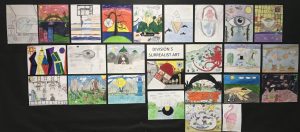
Div 3 Class Blog ©2026. All Rights Reserved.
Powered by WordPress.
Theme by Phoenix Web Solutions